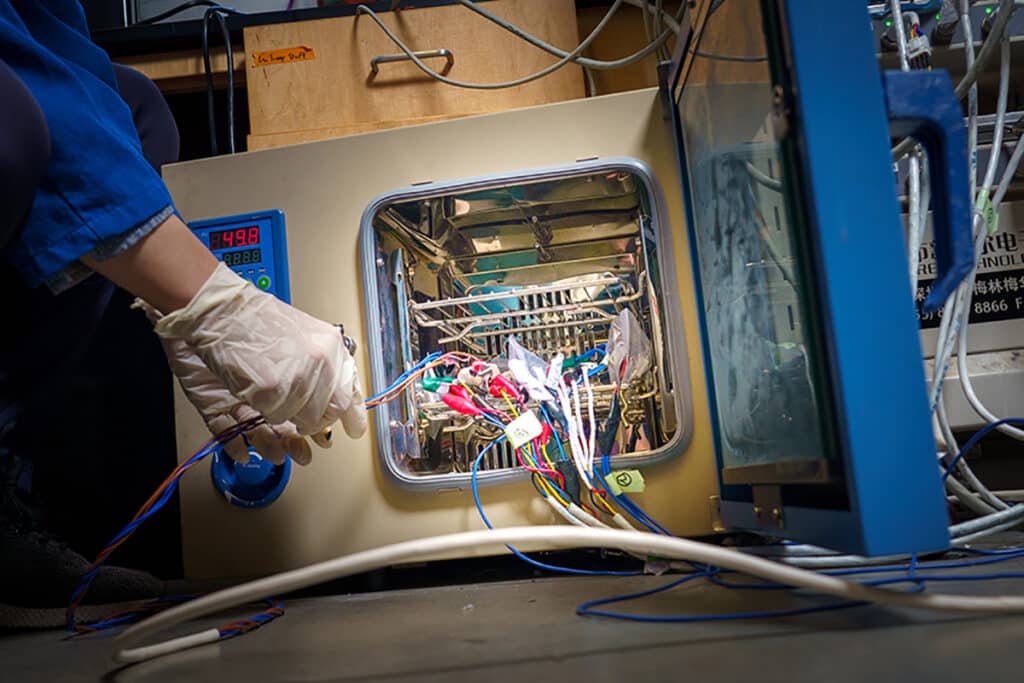One of the challenges in developing batteries, in addition to making them last longer, is making them work properly in adverse weather conditions. This was the goal of engineers at the University of California at San Diego, who developed lithium-ion batteries that perform well at freezing cold and scorching hot temperatures while packing a lot of energy.
These batteries could allow electric vehicles in cold climates to travel farther on a single charge. They could also reduce the need for cooling systems to keep the vehicles’ battery packs from overheating in hot climates.
In tests, the proof-of-concept batteries retained 87.5% and 115.9% of their energy capacity at -40 and 50 degrees Celsius, respectively. Perhaps even more importantly, the researchers note that the batteries maintained high Coulombic efficiencies of 98.2% and 98.7% at these temperatures, respectively, which means the batteries can undergo more charge and discharge cycles before they stop working.
To achieve these results, researchers developed a weakly binding electrolyte that is not only versatile and robust throughout a wide temperature range but also compatible with a high-energy anode and cathode. The electrolyte is made of a liquid solution of dibutyl ether mixed with a lithium salt. Dibutyl ether molecules bind more weakly to lithium ions, which means the electrolyte molecules can easily let go of lithium ions as the battery runs. This weak molecular interaction improves battery performance at sub-zero temperatures. Plus, dibutyl ether can easily take the heat because it stays liquid at high temperatures, with a boiling point of 141 degrees Celsius.

The electrolyte in question could also be compatible with high-density lithium metal anodes and cathodes made from sulfur. These lithium-sulfur batteries promise to store up to two times more energy per kilogram than today’s lithium-ion batteries, which could mean electric cars with double the range. Additionally, sulfur is more abundant and less problematic to source than the cobalt used in traditional lithium-ion battery cathodes.
But they have a problem: as their cathode and anode are extremely reactive, they dissolve during operation, and this worsens at high temperatures, in addition to the high risk of short circuits. With all this, it is no wonder that batteries with this technology last only a few dozen recharge cycles.
The dibutyl ether electrolyte could help avoid these problems, the team predicts. In fact, in tests, their batteries withstood more than other known lithium-sulfur models, both in high and low temperatures.
“You need a high-temperature operation in areas where the ambient temperature can reach the triple digits, and the roads get even hotter. In electric vehicles, the battery packs are typically under the floor, close to these hot roads,” explained Zheng Chen, senior author of the study that will be published this week in the journal Proceedings of the National Academy of Sciences. “Also, batteries warm up just from having a current run through during operation. If the batteries cannot tolerate this warmup at high temperature, their performance will quickly degrade.”
The next steps include scaling up the battery chemistry, optimizing it to work at even higher temperatures, and further extending cycle life.
New energy-dense batteries work well in scorching sun and freezing cold
Source: Tambay News

0 Comments